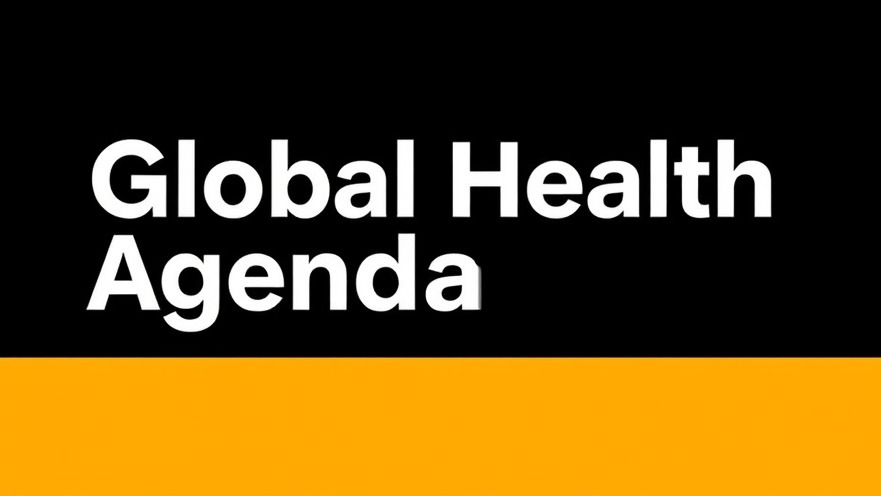
Trump's Global Health Agenda: A Comprehensive Shift
On January 20, 2025, the Trump administration unveiled a series of executive actions that mark a significant pivot in U.S. global health policy. This multi-faceted approach, which directly affects funding and foreign aid, illustrates a departure from previous administrations' strategies aimed at tackling global health crises.
The Withdrawal from WHO: Implications for Global Health
One of the most notable actions was the announcement of the United States' formal withdrawal from the World Health Organization (WHO). This decision, framed as a response to perceived mismanagement during the COVID-19 pandemic and other global health challenges, has stirred considerable debate. The Trump administration cited concerns over China’s influence within the organization while also highlighting demands for disproportionate funding from the U.S. compared to other nations.
The implications are profound: as the largest financial contributor to WHO, the U.S. withdrawal will likely detrimentally impact global health goods and services. The loss of U.S. technical expertise is poised to create significant gaps in international health initiatives.
Reevaluation of U.S. Foreign Aid: An America First Approach
In tandem, the administration initiated a reassessment of U.S. foreign aid, issuing a pause on all new funding while reviewing existing programs. This 90-day halt aims to secure alignment with American interests, which, according to leadership, often diverge from traditional humanitarian goals. The administration has proposed that foreign aid should serve as an extension of U.S. interests rather than a commitment to global common good.
Health programs have especially felt the repercussions of this reevaluation, as nearly all U.S. global health initiatives are funded through foreign assistance allocations. The potential reassignment or cancellation of funding may usher in interruptions of crucial health services worldwide.
Targeting Global Health Initiatives: The Domestic Controversy
The administration's directives to stop funding certain NGOs and restrict programs that the government perceives as promoting non-traditional family values have raised alarm among global health advocates. Programs like PEPFAR, aimed at combating HIV/AIDS, may see challenges in their operations due to policies that restrict specific health funding based on ideological grounds.
Such actions underscore a broader narrative that intertwines public health with socio-political ideologies, complicating the effectiveness of bilateral health programs that often require flexibility and collaboration.
Emotional Effects and Personal Impact
For suburban professionals who prioritize health, wellness, and fitness, these shifts in U.S. global health policy can evoke concerns about the stability of health initiatives that affect their communities. The reverberations of these policies may ultimately trickle down, influencing health resources available domestically and abroad.
Amidst this complex landscape, individuals may also feel a sense of anxiety regarding global health security—a sentiment that resonates with many professional demographics who rely on international collaboration for health advancements.
Strategies for the Future: Navigating Health and Wellness in a Changing Landscape
Understanding these changes is crucial for professionals in health and wellness. It equips them to advocate and adapt in a shifting policy landscape. Here are some strategies to navigate these challenges:
1. Stay Informed
Remain updated on changes in global health policy and funding levels. This will empower you to adjust strategies and approaches within your programs or personal health initiatives.
2. Engage with Local Health Initiatives
Participate in local public health discussions to advocate for the importance of global partnerships in improving community health outcomes, especially related to communicable diseases.
3. Focus on Sustainable Practices
Prioritize sustainable health practices in personal and community wellness initiatives, reinforcing resilience against future disruptions to health programs.
Conclusion: A Call to Action
While President Trump's executive actions on global health are framed as a move towards prioritizing American interests, there is an urgent need for dialogue around how these shifts will impact our collective health security. Professionals in health and wellness must engage actively with these changes, advocating for programs that sustain both local and global health. By focusing on informed advocacy and sustainable practices, communities can work towards ensuring that health remains a priority, irrespective of political upheaval.
 Add Row
Add Row  Add
Add 




Write A Comment